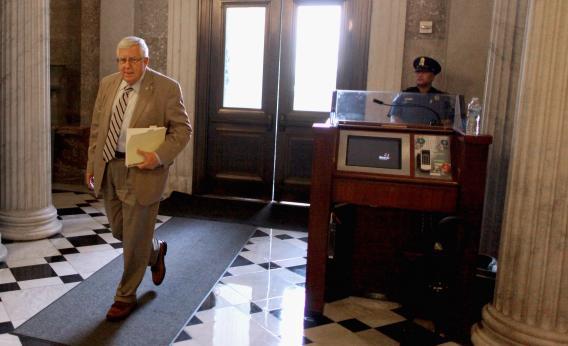Health care is in part a question of money—some people don’t have enough of it to buy decent care—and in part a question of tight supply, there aren’t enough resources to go around. The Affordable Care Act is mostly focused on the financing questions, but as we saw this morning does tackle some supply-side issues including the pernicious dentists’ cartel that pushes up prices by limiting cheaper hygenists’ ability to offer basic dental services without handing a cut over to a real DDS.
Unfortunately, while some people are working to solve these problems others are trying to make them worse. Senators Mike Enzi of Wyoming and Roger Wicker of Mississippi, for example, are conservative Republicans who like to talk about the virtues of free markets. But they’re even more interested in extending the power of regulatory cartels to exclude competitors and raise prices:
The CARE Act would ensure that a patient who undergoes a medical imaging or radiation therapy procedure has those services performed by a professional with appropriate education and certification or licensure. The bill would also require practitioners to meet education and certification standards determined by certification organizations designated by the Department of Health and Human Services (HHS) and obtain state licensure where required.
The CARE Act applies to providers performing medical imaging, planning and delivering radiation therapy, and measuring the clinical effectiveness of medical radiation-emitting equipment, but specifically exempts providers with advanced training including physicians, nurse practitioners, and physician assistants.
Note that in lieu of an objective standard, the idea here is that HHS will designate professional associations as self-regulators empowering insiders to exclude outsiders. Meanwhile, various other classes of existing high status incumbents are exempted from the rule because, again, the intention is to defend insider interests rather than meet any particular quality goals. The same release tells us that Tom Harkin (D-Iowa) is also sponsoring the bill, so we have bipartisan support for solving the non-problem of too much competition in the medical imaging business*.
* Correction: The initial draft referred to the “medical imagining business” which of course does not exist.
